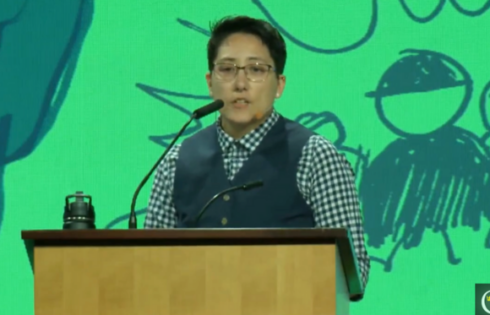
Posting to the internet is an “act,” not “speech,” so you can arrest someone for saying something mean.
That was the logic of the North Carolina Court of Appeals in upholding a conviction under the state’s broad cyberbullying law.
Fortunately for First Amendment defenders, the state supreme court just overturned that decision and struck down the seven-year-old law, saying the state can’t give teens a criminal record to protect other teens “from online annoyance.”
The case involved high school students making mean comments about a fellow student, Dillon Price, on his Facebook page more than four years ago.
MORE: Judge sounds alarm on anti-American campus speech restrictions
After one posted “a screenshot of a sexually themed text message Price had inadvertently sent him,” defendant Robert Bishop called the exchange “excessively homoerotic” and said people shouldn’t take “the internet so seriously.”
Price’s mother complained to police, who used “undercover Facebook accounts” to take screenshots. Bishop was given a suspended sentence and four years of “supervised probation” for violating the cyberbullying law, which prohibits “any person” from using the internet to post or “encourage others to post … private, personal, or sexual information” about a minor “with the intent to intimidate or torment a minor.”
The state supreme court didn’t buy the appeals court’s breezy conclusion that the law had a “merely incidental” burden on speech and that it was “no greater than necessary” to help the state protect children from bullying:
Posting information on the Internet—whatever the subject matter—can constitute speech as surely as stapling flyers to bulletin boards or distributing pamphlets to passersby—activities long protected by the First Amendment. … Such communication does not lose protection merely because it involves the “act” of posting information online, for much speech requires an “act” of some variety— whether putting ink to paper or paint to canvas, or hoisting a picket sign, or donning a message-bearing jacket.
Citing free speech, NC cyberbullying law struck down – https://t.co/KaSzf5OsNU
— The Online Parent (formerly Above The Fray) (@TheOnlineParent) June 13, 2016
MORE: Cyberbullying not on the rise, study finds
That makes the cyberbullying law a content-based restriction subject to “strict scrutiny,” under which it can’t pass the “least restrictive means” test:
At the outset, it is apparent that the statute contains no requirement that the subject of an online posting suffer injury as a result, or even that he or she become aware of such a posting. … Regarding motive, the statute prohibits anyone from posting forbidden content with the intent to “intimidate or torment” a minor. However, neither “intimidate” nor “torment” is defined in the statute, and the State itself contends that we should define “torment” broadly to reference conduct intended “to annoy, pester, or harass.”
The law also doesn’t define what “private, personal, or sexual information pertaining to a minor” means:
Were we to adopt the State’s position, it could be unlawful to post on the Internet any information “relating to a particular [minor].” Such an interpretation would essentially criminalize posting any information about any specific minor if done with the requisite intent.
MORE: Student punished for rap song because it mentions teachers
The law is fatally flawed because it prohibits speech “whether on subjects of merely puerile interest or on matters of public importance,” and with no “actual injury” requirement, the court said.
The Foundation for Individual Rights in Education cheered the supreme court’s decision, calling the North Carolina law “part of a worrying trend of online speech regulations that fail to properly define cyberbullying—a term that, unlike ‘hostile environment harassment,’ does not have a consistent legal definition.”
Will Creeley, vice president of legal and public advocacy for FIRE, had previously warned that the appeals court ruling encouraged students to “just keep your mouth shut” because they wouldn’t know in advance what they couldn’t say.
Read the ruling and FIRE’s post.
MORE: The schools where student speech is worthless
Like The College Fix on Facebook / Follow us on Twitter
IMAGE: Working Word/Flickr






Please join the conversation about our stories on Facebook, Twitter, Instagram, Reddit, MeWe, Rumble, Gab, Minds and Gettr.